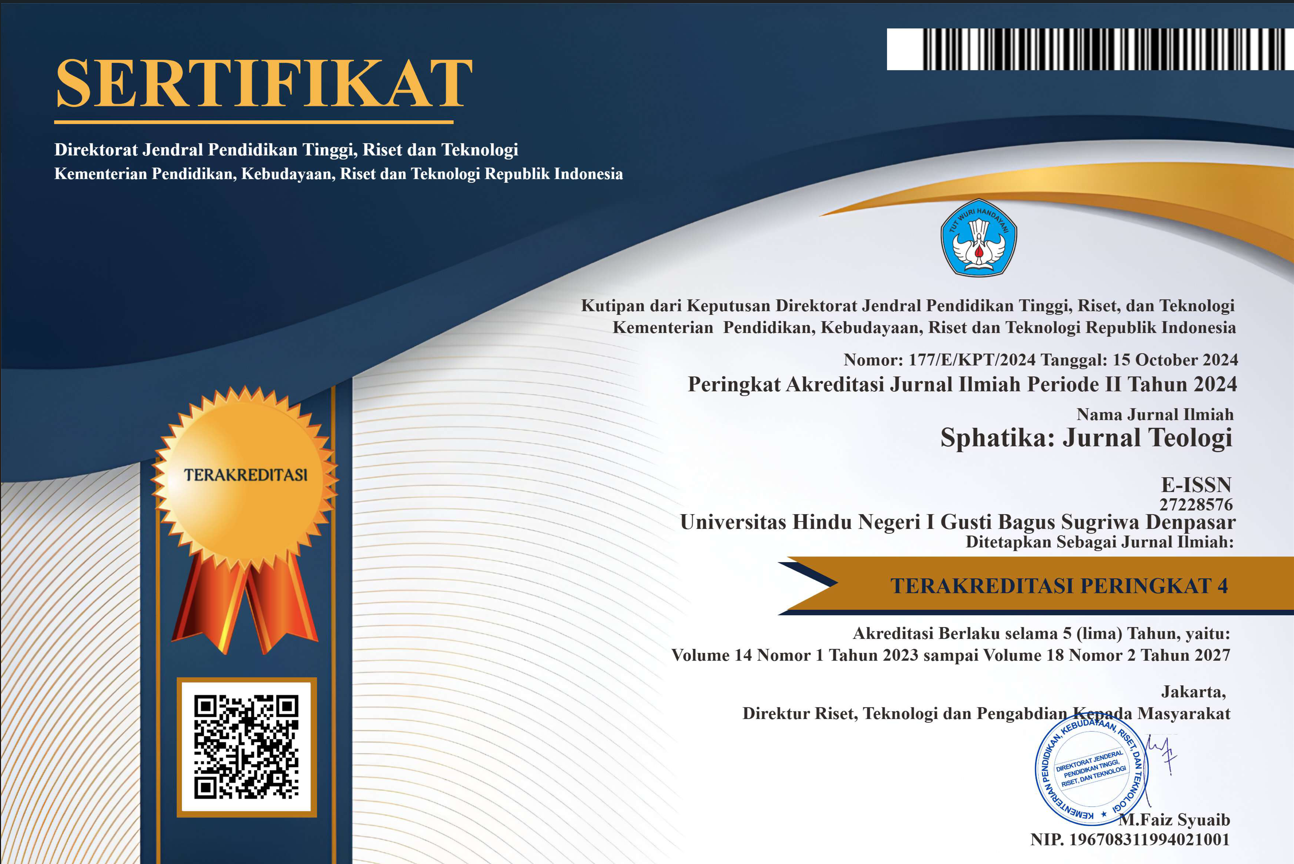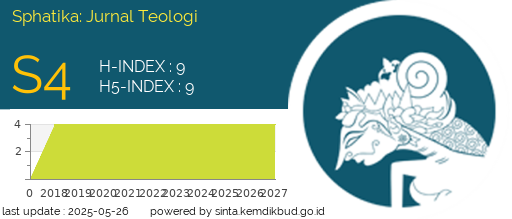Studi Komparasi Pemikiran Søren Aabye Kierkegaard dan John Hick tentang Makna Kejahatan dan Penderitaan dalam Relasi Manusia dengan Tuhan
DOI:
https://doi.org/10.25078/sphatika.v14i1.2565Kata Kunci:
evil; suffering; existence of god; human existence, søren a. kierkegaard; john hick.Abstrak
The problem of the existence of evil and suffering experienced by humans will always give birth to reflections and philosophical thoughts. This will raise the question of where does the suffering and evil that befell human life in the world come from? These various questions will lead to a discussion of God's relation to the existence of this evil and suffering. Because of course this will bring up contradictions from the attributes of God “Good God”, “Omnipotent”, “Omniscient” when suffering and evil are still rampant as if God is not good, incapable, and does not know suffering exists. Therefore, this study using the library research method will explain the meaning of crime and suffering in the eyes of the characters, namely Søren Aabye Kierkegaard and John Hick. The results of this study indicate that Kierkegaard views crime and suffering as occurring because humans are still in the stage of aesthetic existence, namely humans who only pursue happiness and worldly pleasures so this will lead humans to despair, disappointment, and other suffering. Humans must jump to the ethical stage, namely prioritizing virtue morally, and humans must also reach the religious stage, namely melting into God's consciousness. Meanwhile, John Hick views the suffering and evil that must exist to perfect the human soul, because basically, humans are not perfect when they are born.
Referensi
Berthold, F. J. (2004). God, Evil and Human Learning: A Critique and Revision of The Free Will Defense In Theodicy. State University of New York Press: New York.
Hamersma, H. (2014). Persoalan Ketuhanan dalam Wacana Filsafat. Kanisius.
Hick, J. (1966). Evil and The God of Love. Macmillan: Toronto.
Hick, J. (1993). Disputed Questions in Theology and the Philosophy of Religion. Yale University Press: New Haven, Conn.
Hick, J. (2010). An Interpretation of Religion. Macmilian: London.
Keller, J. A. (2007). Problems of Evil and The Power of God. Hampshire: Ashgate.
Kierkegaard, S. A. (1940). Stages on Life’s Way. Princeton University Press: New Jersey.
Kierkegaard, S. A. (1986). Either/Or, vol. I and II, translated by George L. Strengren. Harper and Row Publisher, New York.
Meister, C. v. (2009). Introducing Philosophy of Religion. Routledge: New York.
Munawar-Rachman, B. (2022). Tuhan dan Masalah Kejahatan dalam Diskursus Ateisme dan Teisme. Focus, 3(2), 89–106. https://doi.org/10.26593/focus.v3i2.6081
Peterson, M. (1996). Philosophy of Religion: Selected Readings. Oxford University Press: New York.
Tjahjadi, S. P. Lili., Harun, Martin., Bagir, Z. Abidin., Sudarminta, J., Supelli, Karlina., Sastrapratedja, M., Suseno, F. Magnis., Rachman, B. Munawar., Sunarko, A., Sinaga, M. L., Lanur, Alex., & Tjaya, T. Hidya. (2008). Dunia, Manusia, dan Tuhan: Antologi Pencerahan Filsafat dan Teologi (J. Sudarminta & S. P. L. Tjahjadi, Eds.). Kanisius.
Zed, M. (2004). Metode Penelitian Kepustakaan. Jakarta: Yayasan Obor Nasional.















